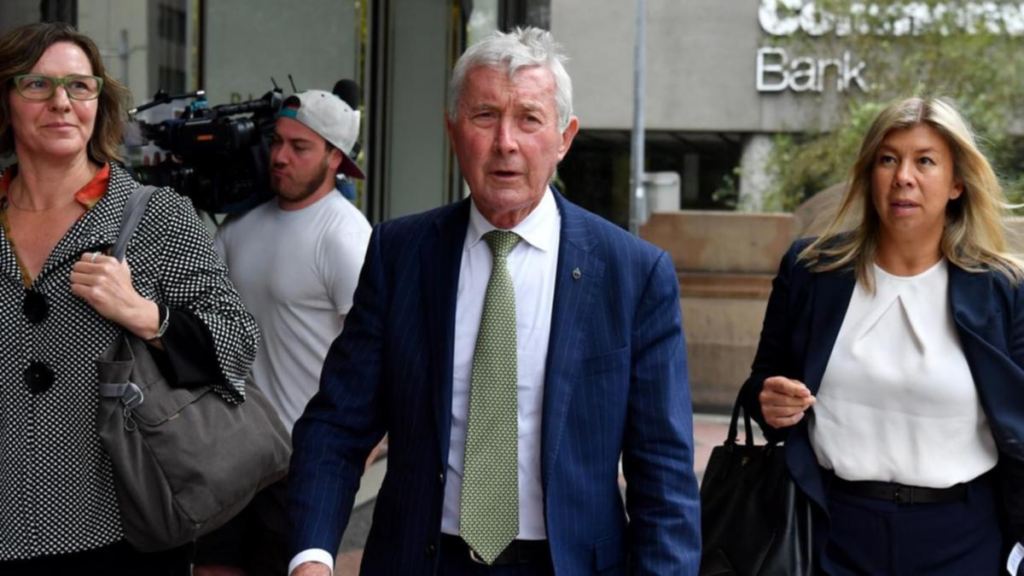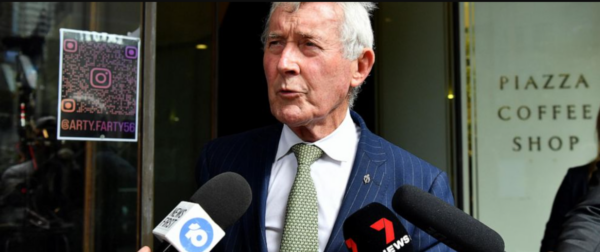Prosecutors told a court on Monday that two accused Chinese spies paid a Sydney businessman envelopes of cash for information regarding a government arrangement with the US and Britain to build a fleet of Australian nuclear-powered submarines.
Alexander Csergo, a businessman charged with reckless foreign interference in Sydney’s Downing Center Local Court, was denied bail by a video connection from prison.
The 2018 legislation prohibiting covert foreign involvement and espionage that incensed China included the 15-year charge.
He is accused of accepting money from two suspected Chinese spies, Ken and Evelyn, for handwritten reports on Australian defense, economic, and national security arrangements since 2021 while working in Shanghai, where he owns a communications and technology infrastructure consultancy.

Prosecutor Connor McCraith said the topics included the September 2021 AUKUS cooperation between Australia, the UK, and the US to build an Australian submarine fleet fuelled by U.S. nuclear technology.
In March, U.S. President Joe Biden and Australian and Britain leaders agreed that Australia will acquire secondhand Virginia-class submarines from the US and develop a new AUKUS class with Britain.
The suspected spies also requested information regarding Australia’s Quadrilateral Security Dialogue with the US, Japan, and India and lithium and iron ore mining in Australia, according to the prosecutors.
Since his Friday arrest at his Bondi home, Csergo has remained in jail. Police and ASIO operatives had questioned him for weeks.
McCraith claimed Csergo revealed early in the interrogation that he thought Ken and Evylen were spies after meeting them but keep in touch with them for two years.
“He clearly has links to the Chinese state and two people he clearly thinks work for the MSS,” McCraith told the court. He stated he returned to Australia with a shopping list of needed information.
McCraith said a normal individual would have notified Australian authorities immediately after being contacted.
McCraith claimed Csergo kept in touch with the accused spy, inviting him to Australia.
Bernard Collaery, Csergo’s lawyer, claimed his client was a successful businessman who had developed working contacts in China.

“Businesspeople like our client know all roads lead to the state, whether it be the state economic intelligence agency” or the Ministry of State Security, Collaery stated.
“Cash payments for consulting reports might have a color to it in Australia but might be the way it’s done in China — it’s not necessarily sinister,” Collaery said.
Collaery claimed the stories were based on public records and Csergo’s creativity, not spying.
Magistrate Michael Barko called Csergo a “very well-educated, sophisticated, worldly businessperson” who deserved the presumption of innocence.
Barko said Csergo faced a strong prosecution case with multiple important confessions.
According to prosecution records, Csergo told ASIO agents he met Ken and Evelyn at deserted Shanghai cafés he assumed had been approved for him.
The records suggest Csergo felt Ken and Evelyn were his “handlers” from China’s espionage agency.
“I don’t know what they do in China, but in this country, if I were to read those facts to any layperson, they would be highly suspicious of the defendant’s conduct, at the very least,” Barko said.
June is Csergo’s court date.
Collaery told reporters outside the court that the Law Council of Australia, the main legal body in Australia, has long cautioned that the foreign influence provisions were overly wide.
“If you work as a consultant in any foreign country, and you are any person, whether you’re a private contractor or a government official, and you undertake consulting work that may relate to Australia’s foreign influences or national security such as articles on the supply of lithium, iron ore, you, according to this legislation… can be guilty of foreign influence,” Collaery said.
“This is an absolute civil liberties issue,” Collaery remarked. China is its subgroup. New South Wales is hearing foreign animosity.”

